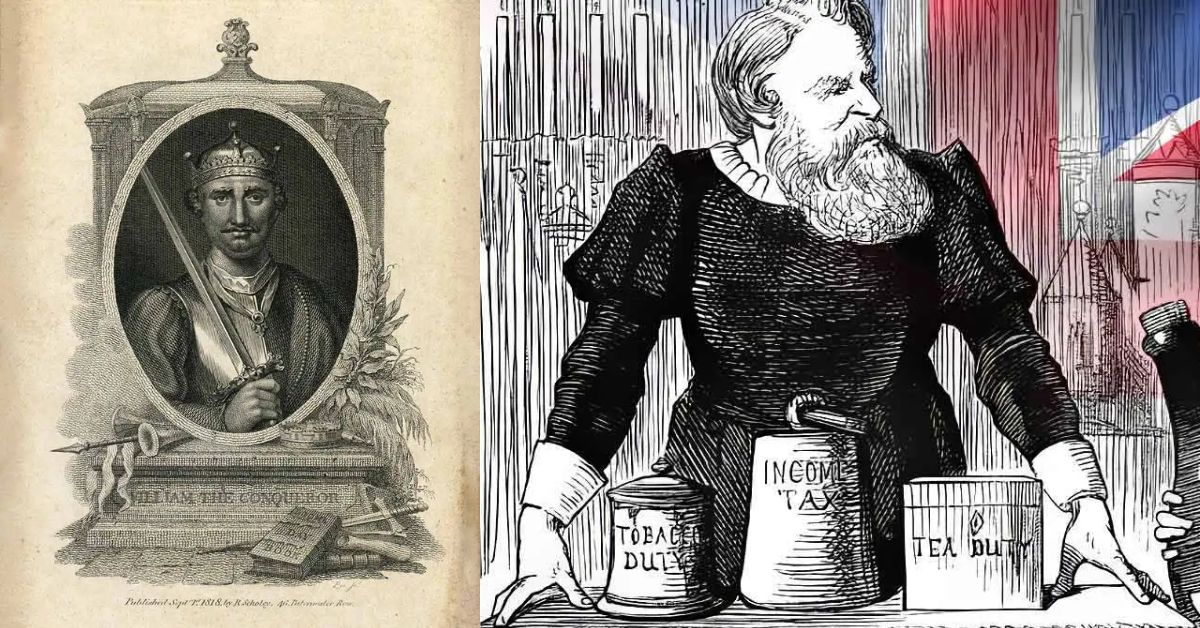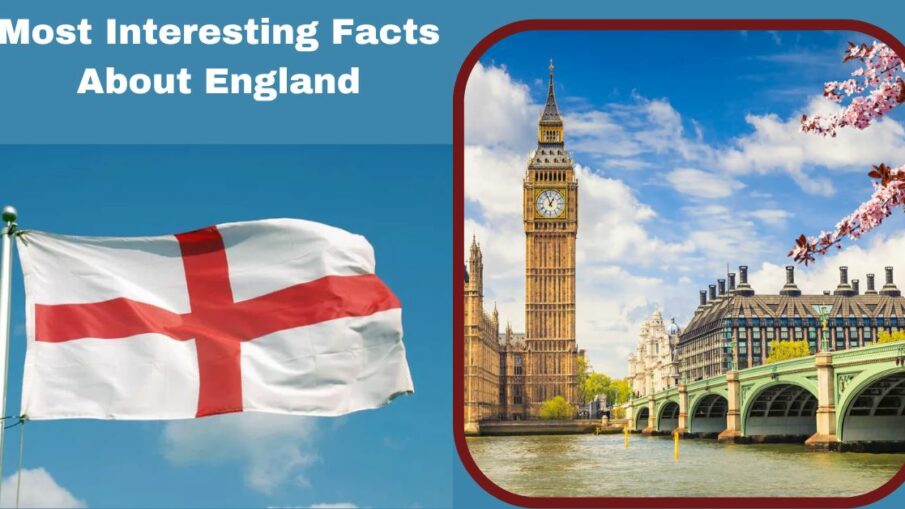The Anglo-Saxons, who first arrived in what is now the United Kingdom of Great Britain and Northern Ireland in the fifth century CE, are the source of England’s history as the biggest and most populous nation in the union. Modern England is going through an identity crisis as a result of Brexit.
It was once a worldwide empire and the hub of the industrial revolution. However, this illustrious island country continues to cherish a rich tapestry of customs and fascinating information. Old Blighty, usually referred to as England, is a strange country with strange customs and strange facts. Continue reading to learn more!
Annual Cheese Rolling Competition in England
The Coopers Hill Cheese-Rolling and Wake has taken place every year in the English county of Gloucester since at least 1826. After the master of ceremonies counts down, the oddest sport in England begins as competitors race down a 200-yard (180-meter) slope in pursuit of a 9-pound wheel of Double Gloucester cheese.

A letter sent to Gloucester’s town crier in 1826 is the earliest known documentation of the competition. The letter explicitly states that the custom may have paganic or possibly prehistoric roots. In any case, the race demands fortitude that defies death.
Few contenders are able to remain on their feet because of the hill’s steepness and severely uneven terrain. The bulk of those who crash to the bottom head-over-heels are met by ambulances. The cheese is awarded to the first person to cross the finish line at the bottom of the hill.
England’s Former Official Language Was French
Following William the Conqueror’s Norman invasion of England in 1066, French overtook English as the primary language of government, academia, literature, and law. French was the language of the aristocracy from 1066 until 1362 when English took its place.
The French language was not widely used, however; the bulk of the lower classes would have spoken old English instead. Despite this, many Britons had to acquire French as a second language in order to survive, even though French would have been the mother tongue for numerous generations of Anglo-Norman royalty.
The consequence is that numerous French words (7,000 to be exact) entered the English language over the almost 300 years when Anglo-Norman French was spoken in England. Despite being a Germanic language, English is replete with French terms, like cabaret, hotel, honesty, and soup.
England Has Laws Against Public Swearing
Contrary to popular opinion, the national character of the English does not necessarily include civility. The English really like swearing. Nevertheless, despite its widespread use, public vulgarity has long been considered a crime in England.
The English state has continually waged war on the profane masses, starting with a 1623 Act of Parliament that outlawed “profane Swearing and Cursing” and continuing through the Town Police Clauses Act (1847), which carried the penalty of up to fourteen days in jail for the use of “profane or obscene language.”
This stance was more recently strengthened by the Public Order Act (1986)’s section 5’s definition of “insulting words” as a crime. A British court named Justice Bean ruled in 2011 that the English should no longer be penalized for screaming obscenities in public after admitting that the fight against profanity was a lost cause. However, despite Bean’s admission, it is still against the law to swear in public in England.
If you want to know more facts related to nature then click on the links given below:
- 4 Incredible Facts About New York City Subway Flooding
- Discovering Nicaragua: 10 Intriguing Facts About This Central American Gem
Champagne Was Invented in England
The cellar master of the Benedictine Abbey at Hautvillers, northeastern France, was the Benedictine monk Dom Pierre Pérignon (1638–1715). Dom Pérignon is regarded as a wine pioneer and is credited with developing a variety of procedures, including the development of the modern cork and revolutionary purifying processes.
Legend has it that Dom Pérignon created sparkling wine in the champagne area around 1697. Thus, it is claimed that the so-called “methode champenoise” is French. However, history adds a unique twist. It turns out that the English had started producing sparkling wine more than 30 years prior to the invention of Monsieur Pérignon.
Christopher Merrett (1614-1695), an English physician and metallurgist, delivered a presentation to the Royal Society in 1662. In order to make their wines “sparkle” within the bottle, English winemakers purposefully added large amounts of sugar and molasses.
This procedure is now known as the “methode champenoise.” It’s important to keep in mind that the English can disagree.
Stonehenge Is Older than the Great Pyramids and the Roman Empire
The history of Stonehenge, a large standing stone circle constructed by hand in the English countryside, dates back around 9,000 years. Three tree trunks were first erected close to where the stone monument would subsequently be constructed, perhaps about 7,000 BC.
Archaeologists think that hunter-gatherer tribes gathered and feasted with early agricultural societies on the site, and the remnants of a feast from approximately 3900 BC at Stonehenge provide a fascinating look into the usage of the site as a gathering place in antiquity.
Please refer to the tweet including the most intriguing information about England:
Interesting Facts about Cricket World Cups 🌎 🏆
In the year 2019, England made the record of hosting the world cup for the most number of times, i.e; five times. #CWC23 #CricketTwitter #ICCWorldCup pic.twitter.com/95dH50sRRD
— Cricket Inside Out (@Cricketinout) September 26, 2023
The first stones came about 3000 BC, and gradually over time, the famous stone circle was constructed. The importance of Stonehenge has evolved throughout time; it has served as a place of worship, a gathering place, and a graveyard.
Some people even think that ancient astronomers constructed the stone circle to watch the stars. Regardless, this intriguing ancient structure predates both the Roman Empire and the Great Pyramids. Hope you like it. Stay tuned with us on Thegeofacts.com for more amazing updates.


Leave a Reply